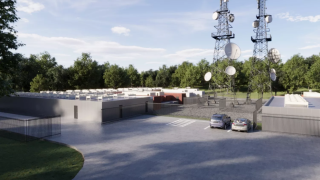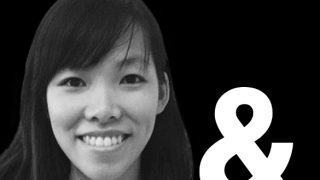Celebrating its 10-year anniversary this year, Datamena operates three hubs, UAE X2, Marseille X1 and Mumbai X1, and has seen its customer base grow from 100 to more than 205 organisations since 2015, while peak traffic at UAE IX is now exceeds 295Gbps.
Appointed vice-president two years after Datamena’s launch, Abou Mustafa is now leading the organisation through a strategic shift to capture both individual clients and entire industries with solutions that incorporate everything from SD-WAN and industrial 5G to multi-cloud offerings.
“We believe we have to keep refining our approach to doing things, and how we serve the local and global enterprises,” says Mustafa, who now holds the title of vice-president enterprise business and Datamena.
“It’s about moving from one-size-fits-all to a vertical-centric strategy, to how to be vertical service providers serving different verticals and industries,” he continues.
As part of EITC, Datamena is the regional and global data hosting arm supporting peering, cloud and enterprise requirements. Its remit is to “remove the barriers to digital transformation – because the main requirement for transformation is that it is borderless”, Mustafa says.
du, on the other hand, is the brand for local operations, providing “the entire service stack from mobile – including security and enterprise mobility – to intercommunication, fixed services and IT from the cloud, colocation and application security. All locally operated in the UAE”, Mustafa explains.
While the roles are clearly defined, the sectors each respective division serves are changing rapidly. At Datamena the service and traffic demands created by the pandemic provided vital insight into where a data hosting business with regional and global reach should position itself.
“Cloud adoption has shown the possibilities in digitalisation and now it is time to take it a step further,” Mustafa says.
By way of example, during the pandemic 1.2 million students across the region needed to access their e-learning platform.
“We supported Microsoft to offload the Teams workload to support these students in universities and schools in less than 48 hours by leveraging Datamena’s regional capabilities.
“This is just to offload 300G east to Mumbai, and west in 48 hours,” he says.
In line with the new approach, the next step is to target the region’s entire education sector. “This is the harvest of our capabilities that we’ve been building for the last 10 years,” Mustafa says.
It won’t stop there. Datamena’s vertical strategy will also see it position to capture such verticals as logistics, healthcare, financial services and hospitality, in fact “any vertical segment that not only wants access to digital solutions and platforms, but wants to do so securely and efficiently”, he adds.
These are also some of the biggest verticals in the region, some with dedicated freezones where companies cluster. This will no doubt be crucial to creating the point of critical mass the strategy requires, where it becomes detrimental for those within such clusters to be left behind.
For Datamena the shift will capture the demands of the nascent 5G ecosystem – which requires huge multi-player efforts to nurture – all while maintaining focus on the second pillar. “We are hyperscaler enablers,” Mustafa says.
“I’m proud to say we are the main enabler to light up the Middle East when it comes to the hyperscale footprint map. When you see the UAE as a region for AWS or Microsoft, that’s because of our infrastructure. It’s the same for Oracle, SAP and others. Any hyperscaler you can name... we have all the infrastructure for them to be successful in the UAE and across the region,” Mustafa continues.

Regional hubs
Datamena is not the only one making headlines year to date, proving the region’s interconnected digital ecosystem is certainly blossoming.
STC is forming a $1 billion connectivity company specialising in data centre hosting as well as international and regional capacity. Over in Bahrain, members of Manama-IX can now resell increments of their capacity on the platform to other providers, who in turn benefit as they do not need to establish a direct connection to the exchange.
“We expect the same in Oman,” Mustafa says of the developments. “We see how we empower and how we make this phenomenon that was started seven years back as a Datamena hub and how it is now replicated in different markets. This has been very healthy.
Before it was only Datamena building and interconnecting these hubs. To have the interconnected regions beyond the UAE this will benefit the ecosystems we have been building
But no hub can be an island. The next step, Mustafa says, will be to take all the exchanges and hubs that operate in isolation and interconnect them “in a mature and open way”.
“I hope this will happen soon and once we reach that interconnected region, I believe it is a time for these countries and regions to take it to the next level, which is how to enable the stacks of these technologies,” Mustafa says. But, with major industries to digitalise first, Mustafa and his team have their work cut out for now.
“I believe the opportunities for digital innovation are limitless,” he says. “The next wave of digital transformation, luckily, will not end.”





